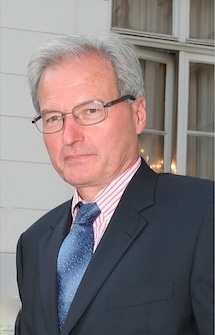Michel Callon passed away on July 28, 2025.

A civil engineer from the École des Mines de Paris who earned a postgraduate degree in economics, he joined the Centre for the Sociology of Innovation in the late 1960s. Sharing a close intellectual friendship with Jean-Pierre Vignolle and Antoine Hennion, he conducted research on the development of electric vehicles, pioneering an approach to innovation by studying the controversies they raise. Callon laid the foundation for a sociological approach to innovation through translation processes and implemented original scientometric methodologies. In 1982, Callon became director of the CSI. Through his recruitment choices, scientific direction, and ability to obtain financial resources, he transformed the centre into a leading institution in the field of the sociology of science and technology. With the help of Bruno Latour, whom Michel Callon brought to the CSI, he conducted research projects on the construction of science and technology. These projects made a significant contribution to the development of Science and Technology Studies (STS). Their collaboration resulted in landmark articles and collective books, such as La science telle qu’elle se fait (1982). Along with Latour, Madeleine Akrich, and John Law, Callon was one of the architects of Actor-Network Theory (ANT), which became a major school of thought within STS in the 1980s, bringing international renown to the CSI. The Society for Social Studies of Science recognized his contributions by electing him president from 1998 to 2000 and awarding him the Bernal Prize in 2002.
With an interest in economics (and economy) since his early days, Michel Callon developed a keen understanding of markets in the late 1990s, focusing on the role of scientific knowledge and technical devices. The 1998 collective volume he edited, The Laws of the Markets, paved the way for an original analysis of market phenomena that many researchers in France and other countries would follow. In Market Devices (2007), Callon, Yuval Millo, and Fabian Muniesa compiled a collection of texts emblematic of the variety of devices used in the organization of markets. In Market in the Making (2021), he analyses how market arrangements work and questions their integration into contemporary society.
Callon’s insatiable curiosity and extraordinary analytical and synthetic abilities led him to address the issues of expertise and democracy early in his career. In Le pouvoir des malades, published in 1999, he and Vololona Rabeharisoa questioned how research and expertise are organized in minority scientific fields, such as those focusing on rare diseases. In Acting in an Uncertain World (2011), he, Yannick Barthe, and Pierre Lascoumes reflect on implementing expertise and decision-making in uncertain situations. These reflections also led Callon to accept the presidency of COESDIC (Comité d’expertise et de suivi de la démarche d’information et de consultation), which was established by ANDRA (the French National Agency for Radioactive Waste Management) to facilitate dialogue between public authorities and various stakeholders regarding the construction of a reversible radioactive waste storage facility in deep geological layers.
Through his fieldwork and theoretical research, Callon has interacted with numerous institutions, companies, and associations. His research in the sociology of science informed research and innovation policy development in the 1980s and 1990s. Together with Jean-Pierre Courtial, Philippe Larédo, and Philippe Mustar, Callon conducted extensive work evaluating public policy in this field. They developed the co-word analysis method, which pioneered the qualitative and quantitative analysis of research dynamics. He was a keen observer and actor of change for all the organizations with which he cooperated. He trained generations of French and foreign researchers, supporting them throughout their careers. He would not have liked the term “mentor,” but he was one to many of his younger colleagues, inspiring, encouraging, and valuing their research.
We have lost a dear companion who remained actively engaged in analyzing economic change until recently, as evidenced by his latest publications. The academic community has lost an eminent colleague whose sharp mind had a gift for making the world a little more intelligible and people a little smarter. In memoriam.

